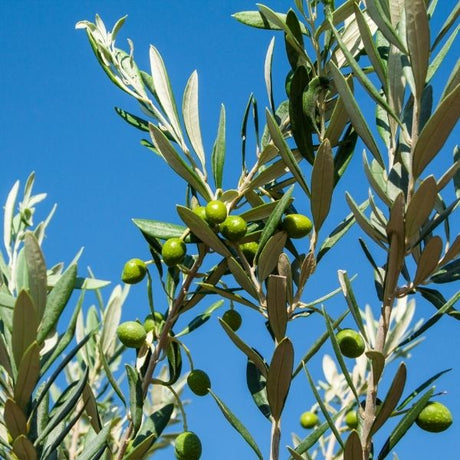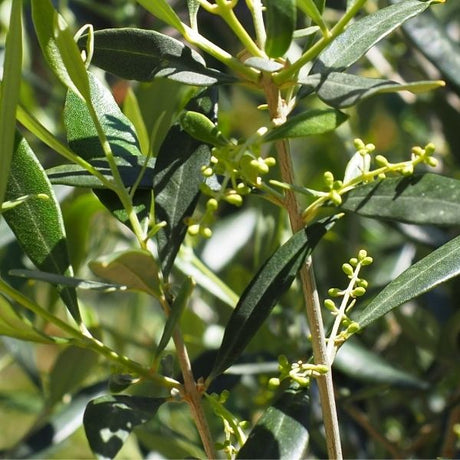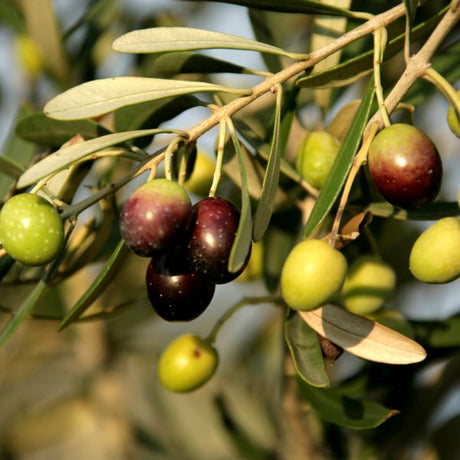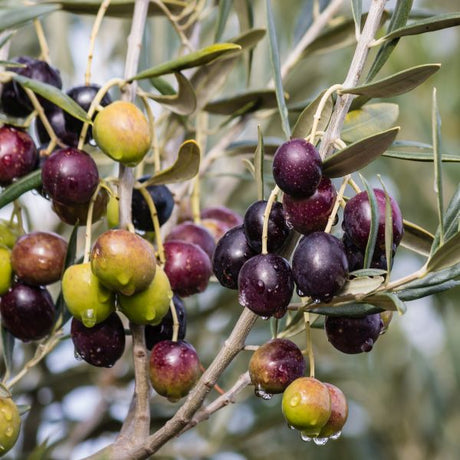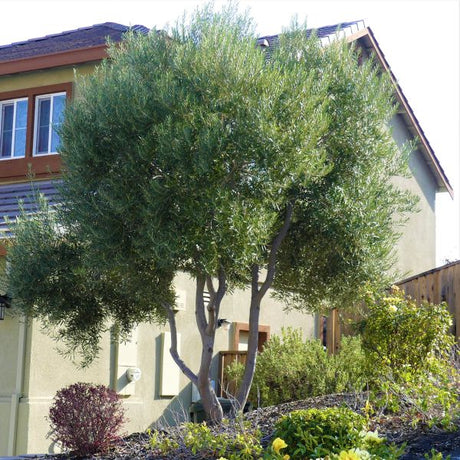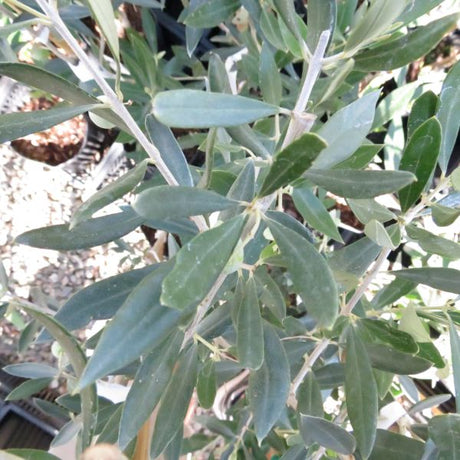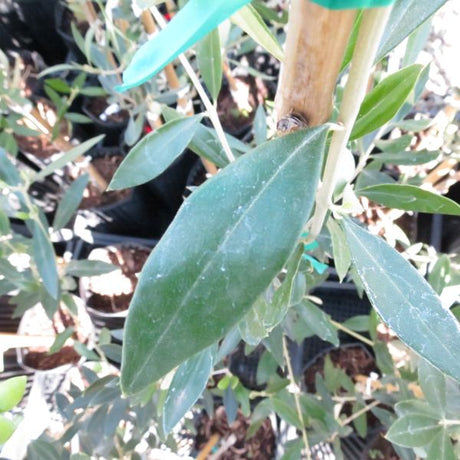-
Olea europaea 'Manzanillo'
Sold outUp to 17% offSale price From $5333 Regular price $6390Unit price /Unavailable -
Little Ollie® Dwarf Olive Tree
Olea europaea 'Montra'
Sold outRegular price $14490Unit price /Unavailable -
-
Olea europaea 'Arbequina'
Sold outRegular price From $8988Unit price /Unavailable -
Olea europaea 'Frantoio'
Sold outUp to 7% offRegular price From $4459Unit price /Unavailable -
Olea europaea 'Koroneiki'
Sold outRegular price From $8966Unit price /Unavailable -
Olea europaea 'Arbosana'
Sold outRegular price From $6496Unit price /Unavailable
Superb Olive Fruit Trees: Easy-Care in-Home Gardens & Containers
Since ancient times, olive trees have been a staple in the Mediterranean landscape and diet. Capture the essence of sun-drenched coastlines and connect to a sense of antiquity with olive trees from Nature Hills Nursery.
History & Symbolism of Olive Trees

There is fossil evidence that wild olive trees appeared in the area around the Mediterranean Sea millions of years ago. As far back as the Bronze Age, humans have relied on olives for food. That long historic relationship gave rise to much symbolic meaning linked to the tree and its versatile fruit — which appears green then ripens to a blackish purple and is eaten raw or processed into oil for cooking. An olive branch is a universal symbol of peace. Greeks and Romans crowned victors of war or competition with crowns of olive garlands, and olive oil is an important element in many religious ceremonies. Spanish explorers introduced olive trees to the New World in the 1500s and to California in the 1700s. Today, these fruit trees are cultivated throughout the tropical regions of the world.
Olive Tree Varieties
Nature Hills offers several varieties of olive trees, most of which are compatible with USDA growing zones 8 to 11. Arbequina olive trees are fast growing with prolific harvests, and Arbosana olive trees deliver large clusters of petite fruit with intense flavor. Slow growers, like Frantoio olive trees, can develop gnarled, twisted trunks that add visual interest to your landscape.
Where to Plant Olive Trees

Olive trees do well in sunny areas and will be happy in soil with good drainage. They’re easy to grow and are resistant to most insects and disease issues. Many olive tree varieties are tolerant of drought and cold, and they can grow up to 30 feet tall and just as wide.
Olive Trees in Containers
For colder climates, plant a Mission or Leccino olive tree in a container. Bringing fruit trees indoors for the winter protects the plant and lengthens your enjoyment of your olive tree. Try these olive tree varieties in containers with lots of drainage.
FAQ's for Buying Olive Trees Online
What are the best Olive trees for growing in containers or indoors?
What are the best Olive trees for growing in containers or indoors?
Popular compact varieties like Arbequina, Mission, and Leccino Olive trees thrive in containers and are perfect for patios or sunny indoor spaces. These types stay manageable in size, especially with pruning, and their evergreen foliage brings a Mediterranean vibe into your home. Just be sure to provide plenty of drainage and sunlight to keep your potted olive tree happy.
Can Olive trees survive in colder climates?
Can Olive trees survive in colder climates?
While Olive trees prefer warm regions in USDA zones 8 to 11, they can be grown successfully in colder climates when planted in containers. Simply move your potted Olive tree indoors during the winter months. Varieties like Mission and Frantoio are particularly well suited for this type of growing and will appreciate a sunny window and protection from frost.
How much sun and water do Olive trees need?
How much sun and water do Olive trees need?
Olive trees love the sun and need at least six to eight hours of full sunlight each day. They are drought tolerant once established and prefer well-drained soil. Avoid overwatering and let the soil dry slightly between waterings to mimic their native Mediterranean habitat. Whether planted in the ground or in a pot, proper sunlight and drainage are key to a healthy Olive tree.
Do Olive trees produce fruit indoors or in containers?
Do Olive trees produce fruit indoors or in containers?
Yes, Olive trees can produce fruit when grown in containers, especially if placed in a sunny location. For the best chance of fruit production, choose a self-fertile variety like Arbequina or Arbosana and provide consistent care. Indoor Olive trees may take longer to fruit, but with the right conditions and patience, you can enjoy homegrown olives from your own tree.
What are the symbolic and historical meanings of Olive trees?
What are the symbolic and historical meanings of Olive trees?
Olive trees are rich with symbolism and history. They are known worldwide as symbols of peace, prosperity, and resilience. Originating in the Mediterranean and cultivated since the Bronze Age, Olive trees have played roles in ancient Greek and Roman ceremonies, religious rituals, and cuisine. Planting an Olive tree is not just a gardening choice, it is a connection to thousands of years of tradition and timeless beauty.

